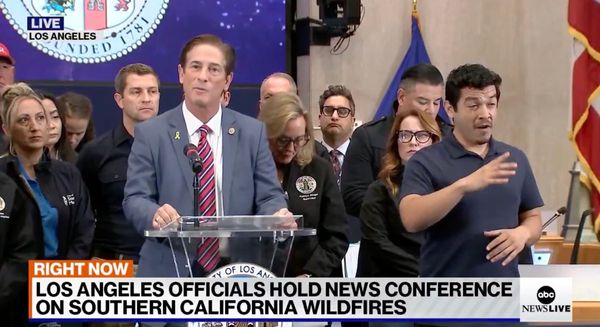
Rishi Sunak has proposed raising the smoking age by one year, every year, meaning a 14-year-old today will never legally be sold a cigarette.
The Prime Minister confirmed the move while addressing MPs at the Conservative party conference on Wednesday, saying it would help reduce pressure on the NHS in the long-term.
Mr Sunak denied that he was attempting to “take away the rights of anyone to smoke who currently does”, insisting it would help the next generation to "grow up smoke-free".
A vote on the measure will not be whipped, he said, acknowledging that many fellow Conservative MPs might not agree with the move.
Mr Sunak also announced a plan to “bring forward measures to restrict the availability of vapes” to children.
This will examine “flavours, packaging, point-of-sale displays and disposable vapes”, he added.
The move follows concern about a sharp rise in the number of young people using disposable vapes, which were recently banned by the Government.
Mr Sunak told the crowd that two in five children had used a vape.
“That is shocking and wrong. And we must act before it becomes endemic.”
Professor Chris Whitty said: “Smoking damages many lives. It causes stillbirths, asthma in children, heart disease, stroke and dementia in addition to causing most lung cancer and increasing risk of many other cancers.
“Becoming addicted to cigarettes in early life is one of the worst things that can happen for future health. Preventing people becoming addicted to smoking, and helping those who smoke to quit are two of the most important measures we can take to improve health.”
Health policy leaders welcomed the announcement but urged the Government to go further in implementing tobacco control measures.
Adam Briggs, Senior Policy Fellow at The Health Foundation, said: “Creating a smoke-free generation will have lifelong health benefits for young people, their friends, and families, reducing pressure on public health services, the NHS, and social care. If policymakers wish to take public health seriously, they must go further and implement wider preventative strategies.
“The government should learn from tobacco policy and take bolder steps to prevent poor health from other leading risk factors such as alcohol and junk food.”
Christopher Snowdon, Head of Lifestyle Economics at the Institute of Economic Affairs (IEA), said the move would “create a two tier society in which adults buy cigarettes informally from slightly older adults and will inflate the black market in general”.
“It may well breach equalities legislation and will very likely be challenged in the courts. It will certainly create huge problems for retailers and may ultimately require a system of national ID cards.”







